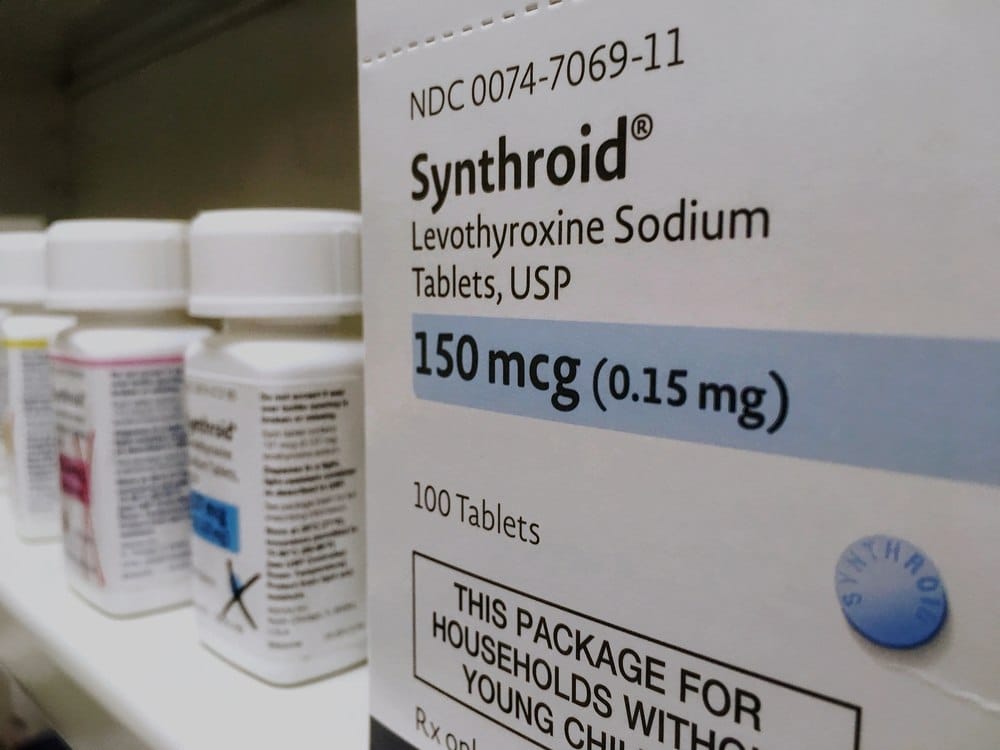Levothyroxine, a common medication for hypothyroidism, has been linked to bone loss in older adults, according to research presented at the Radiological Society of North America annual meeting. This synthetic version of thyroxine, the hormone produced by the thyroid gland, is marketed under various brand names, including Synthroid. It is one of the most prescribed medications in the United States, with about 23 million Americans—roughly 7% of the population—using it daily.

The drug is primarily prescribed to treat hypothyroidism, a condition in which the thyroid gland fails to produce enough thyroxine. Without proper treatment, hypothyroidism can lead to weight gain, fatigue, hair loss, and other severe complications. However, excessive levels of thyroxine, whether due to overtreatment or other factors, have been associated with an increased risk of bone fractures.
The new study reveals that even among patients with thyroid hormone levels within the normal range, long-term use of levothyroxine over six years is associated with a higher rate of bone loss. Researchers highlight that this bone loss occurs even when patients follow current dosage guidelines.
Dr. Shadpour Demehri, co-senior author of the study and a professor of radiology at Johns Hopkins University, stated, “Our study suggests that even when following current guidelines, levothyroxine use appears to be associated with greater bone loss in older adults.”
The study involved participants aged 65 or older, with 81 individuals taking levothyroxine daily and 364 serving as non-users for comparison. All participants underwent blood tests to confirm normal levels of thyroid-stimulating hormone (TSH) and free T4, which measures thyroxine levels. Bone density and mass were measured through scans conducted at multiple intervals.
Over six years, participants taking levothyroxine showed greater losses in both total body bone mass and bone density compared to non-users. Researchers found that the association between bone loss and levothyroxine use became more pronounced as thyroxine levels increased.
Excessive thyroid hormone levels, even within the upper normal range, are believed to contribute to bone resorption, a process that breaks down bone tissue. Dr. Elena Ghotbi, co-senior author and postdoctoral research fellow at Johns Hopkins University, explained, “When thyroid medication is given in excess, then people have more thyroid hormone than they need. This can lead to a breakdown of bone tissue and eventually result in osteoporosis.”
While the study establishes a link between levothyroxine use and bone loss, it does not prove causation. Ghotbi emphasized that other factors could contribute to bone loss in patients taking the medication. For instance, individuals prone to bone loss may also be more likely to require thyroid medication.
Dr. Marilyn Tan, a clinical associate professor in endocrinology and internal medicine at Stanford University, noted that evidence linking levothyroxine use to bone loss among patients with normal thyroid levels remains inconclusive. Dr. Aaron Schulman, an assistant professor of endocrinology at Weill Cornell Medical College, praised the study’s design but expressed interest in additional details, such as participants’ initial TSH levels and reasons for their levothyroxine prescriptions.
Despite the findings, experts caution against abruptly discontinuing levothyroxine. For many patients, particularly those who have had their thyroid gland removed, the medication is essential for maintaining health. Dr. Schulman remarked, “Many patients absolutely need to take levothyroxine. Those who stop taking it could experience severe health consequences.”
Levothyroxine remains the gold standard for treating hypothyroidism due to its safety and effectiveness. Alternative treatments may pose even higher risks, including increased bone loss, especially in older adults.
The potential risk of bone loss appears to be lower in premenopausal women taking levothyroxine, as they generally have higher estrogen levels that help protect bone density. However, postmenopausal women may face a compounded risk of bone loss due to lower estrogen levels.
Patients concerned about the implications of levothyroxine use should consult their healthcare provider before making any changes. Some evidence suggests that not all individuals prescribed levothyroxine have true hypothyroidism. In certain cases, people with normal hormone levels may be taking the medication to address hypothyroid-like symptoms.
Experts recommend revisiting diagnoses and treatment plans with a healthcare provider to ensure that thyroid hormone levels remain within an optimal range. Dr. Schulman suggested that instead of discontinuing levothyroxine, adjustments in dosage might help mitigate bone loss while maintaining thyroid function.
“This study suggests that there is a continuum of bone risk that extends within and outside the normal reference range,” Schulman explained. “The goal may be to target a specific part of the normal range to minimize bone loss while effectively managing thyroid levels.”
Levothyroxine users are encouraged to stay vigilant about bone health by incorporating regular bone density scans, adequate calcium and vitamin D intake, and weight-bearing exercises into their routines. These measures can help offset potential bone loss and reduce the risk of fractures.
